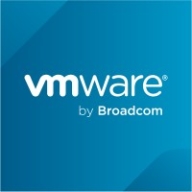

Druva Phoenix and VMware Live Recovery are products in the data protection and recovery industry. Druva Phoenix is noted for its pricing and support, while VMware Live Recovery offers superior features for those prioritizing functionality.
Features: Druva Phoenix provides cloud-centric data recovery solutions with advanced data deduplication, automated backup, and AWS-based disaster recovery. VMware Live Recovery excels in real-time recovery, minimizes downtime, and offers rapid restoration capabilities.
Room for Improvement: Druva Phoenix could enhance its ransomware protection for platforms like Hyper-V and Nutanix and improve its AI analytics features to provide more utility. VMware Live Recovery could reduce its complexity in setup, lower initial costs, and improve resource utilization efficiency.
Ease of Deployment and Customer Service: Druva Phoenix is straightforward to deploy with its cloud-native design and offers accessible and responsive customer support. VMware Live Recovery offers flexible deployment within virtualized environments, which may require more configuration, but benefits from robust customer support.
Pricing and ROI: Druva Phoenix offers a cost-effective pricing model with lower setup costs, appealing to budget-conscious users seeking quick ROI. VMware Live Recovery might involve higher upfront costs but promises greater returns through advanced features and improved operational efficiency.
| Product | Market Share (%) |
|---|---|
| VMware Live Recovery | 7.3% |
| Druva Phoenix | 1.2% |
| Other | 91.5% |


| Company Size | Count |
|---|---|
| Small Business | 5 |
| Midsize Enterprise | 3 |
| Large Enterprise | 2 |
| Company Size | Count |
|---|---|
| Small Business | 36 |
| Midsize Enterprise | 12 |
| Large Enterprise | 40 |
Druva Phoenix is a comprehensive cloud-based data protection and management solution that enables organizations to securely backup, recover, and manage their data across endpoints, physical servers, virtual machines, and cloud applications. With its scalable and flexible architecture, Druva Phoenix simplifies data protection and eliminates the need for traditional backup infrastructure.
By leveraging the power of the cloud, Druva Phoenix offers organizations a cost-effective and efficient way to protect their critical data. It provides automated backup and recovery capabilities, ensuring that data is always protected and easily recoverable in the event of a disaster or data loss. With its global deduplication and compression technology, Druva Phoenix minimizes storage requirements and reduces costs.
Druva Phoenix also offers advanced features such as point-in-time recovery, allowing organizations to restore data to a specific point in time, and granular file-level recovery, enabling users to recover individual files or folders. Its intuitive web-based console provides a centralized view of all protected data, making it easy to manage and monitor backups across the entire organization.
In addition to data protection, Druva Phoenix offers comprehensive data management capabilities. It enables organizations to gain insights into their data through advanced analytics and reporting, helping them make informed decisions and optimize their storage resources. Druva Phoenix also supports legal and compliance requirements by providing eDiscovery capabilities and ensuring data is retained and disposed of according to regulatory guidelines.
With its cloud-native architecture, Druva Phoenix offers organizations the flexibility to protect and manage their data across a wide range of environments, including on-premises, remote offices, and cloud applications such as Microsoft 365 and Google Workspace. It seamlessly integrates with popular cloud platforms like AWS and Azure, allowing organizations to leverage their existing cloud investments.
We monitor all Disaster Recovery (DR) Software reviews to prevent fraudulent reviews and keep review quality high. We do not post reviews by company employees or direct competitors. We validate each review for authenticity via cross-reference with LinkedIn, and personal follow-up with the reviewer when necessary.